2021 was a watershed year for Palestinians. The struggle for Palestinian freedom and liberation saw unprecedented levels of global solidarity. From Jerusalem, to the West Bank, Gaza, and Palestinian communities inside Israel, Palestinians rose up together in defiance of the Israeli occupation, and demanded a better future. The fight against forcible expulsion of Palestinians in Sheikh Jarrah and Silwan reached the global stage, and more human rights groups joined the calls to end Israeli Apartheid.
Despite the strides made towards justice and equality this year, 2021 was not without its challenges for Palestinians. Palestinians entered the second year of the coronavirus pandemic, and like much of the global south, struggled to get their hands on the life saving vaccines being hoarded by the world’s richest countries.
Palestinians faced violent crackdowns on their protests, not only from the Israeli occupation, but from the very authorities that claim to represent them as a people. Palestinian leaders once again failed to live up to their promises of free elections, and hopes of a new future for Palestinian youth were dashed. Gazans faced the worst Israeli offensive on the territory in years, killing hundreds and wreaking further havoc on an already crumbling infrastructure.
From the streets to the digital sphere, Palestinians were suppressed and censored at every turn. And yet still, their voices were heard around the world more than ever before.
Rights groups declare Israel an Apartheid state
For years Palestinians have likened Israel’s racist and discriminatory policies to an Apartheid system, where the law inside Israel and the occupied Palestinian territory are designed and applied to Jews and Palestinians. In 2021, the term “Israeli Apartheid” entered the mainstream as rights groups declared that Israel is in fact, an Apartheid state.
B’Tselem, the leading human rights group in Israel released a watershed report in January 2021, stating that Israel is an Apartheid state, due to the fact that there are millions of Palestinians and Israelis living under the control of a single regime, but with vastly unequal rights.
In the entire area between the Mediterranean Sea and the Jordan River, the Israeli regime implements laws, practices and state violence designed to cement the supremacy of one group – Jews – over another – Palestinians.”
B’Tselem
Months later, Human Rights Watch released a report declaring that Israel “methodically privileges” Israeli Jews over Palestinians through discriminatory policies,” thus making Israel guilt of the crime of Apartheid.
The reports were widely welcomed by supporters of Palestinian human rights, but were met with severe pushback from Israeli leaders, who wrote the reports off as “propaganda”, and accused the groups of “demonizing Israel.”
Despite the pushback, other groups are expected to follow suit in the new year, as Israeli Apartheid continues to make its way into the mainstream vernacular.
COVID-19 vaccine discrimination
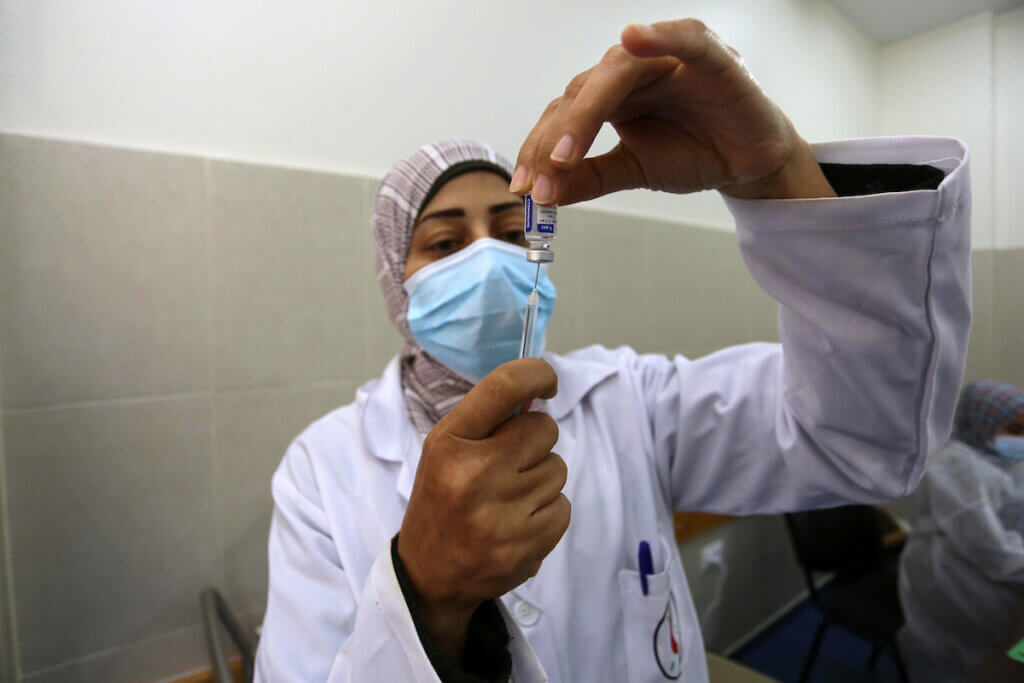
As the world entered its second year of the coronavirus pandemic, Israel emerged as the global leader in the distribution of the COVID-19 vaccine to its citizens. Israel became the first country Israel became the first in the world to vaccinate most of its population with the vaccine, and struck up a deal with Pfizer, agreeing to provide the company with a treasure trove of medical data in exchange for hundreds of thousands of new vaccine doses to be sent to Israel each week.
But while Israel was vaccinating its citizens, Palestinians living under Israeli occupation in the West Bank and Gaza continued to see Covid cases surge, with no vaccine prospects in sight. Israel continued to deny its obligations under international law to provide the life saving vaccines to Palestinians, in what rights groups said was “part of its policy of maintaining its apartheid regime of institutionalised domination.”
Israeli officials publicly stated their intent to not let any Israeli vaccines into Gaza, while the Palestinian Authority accused Israel of delaying vaccine shipments into the besieged territory.
And while Israeli leaders insisted that they were vaccinating all Israeli citizens, regardless of race or ethnicity, equally and fairly, including the state’s 2 million Palestinian citizens, human rights advocates pointed out that that wasn’t the case.
While Palestinians citizens of Israel qualified to receive the vaccine just as Jewish Israelis did, rights groups claimed that Israel was employing other mechanisms of discrimination when it came to vaccine distribution, including failing to provide vital COVID-19 information, including facts relating to the vaccine, available in Arabic.
Palestinian elections fail to materialize, again

At the start of 2021, the Palestinian streets were buzzing with talking of something that many Palestinians thought might never happen again: elections.
On January 15th Palestinian President Mahmoud Abbas announced that presidential and parliamentary elections would be held this spring and summer, 15 years after he was first elected for what was supposed to be a four-year term.
At the time, the announcement of the elections was largely regarded as a bid to restart diplomatic relations between the Palestinian Authority and the new U.S. administration under president Joe Biden.
Many Palestinians remained skeptical that the elections would happen; after all it wasn’t the first time Abbas had declared his intention to hold elections – elections that never materialized. Despite this, many Palestinians, particularly youth, held hope that for the first time they would be able to participate in elections and vote in a new government.
Those hopes were eventually dashed, as Abbas’ hold on power was threatened by challengers from his own Fatah party, leading him to call off the elections, just days before they were set to take place in May. By the end of the year, a date for future elections has still yet to be set.
#SaveSheikhJarrah

In 2021 the story of a small Palestinian neighborhood in occupied East Jerusalem made its way into the homes of millions of people across the globe, as Sheikh Jarrah’s residents fought with all their might against their forcible eviction from their homes. #SaveSheikhJarrah trended on social media as Palestinians sounded the alarm over the impending eviction of the neighborhood’s families.
For decades the families have been fighting against the effort of settler organizations to forcibly evict them and take over their homes. In May this year, the eviction case against the Sheikh Jarrah families was taken to the Supreme Court, which has since refused to make a decision, instead opting to force the Palestinian families to “come to an agreement” with the settlers attempting to expel them. The families eventually rejected a proposal by the Israeli Supreme Court that would have made them “protected tenants” in their own homes, paving the way for the future displacement of their families by Israeli settlers.
In 2021, as the threat of forcible eviction loomed over their heads, Sheikh Jarrah’s residents mobilized their community, and the world, to fight against their expulsion. In an effort to bring international attention to their case, they launched the campaign to #SaveSheikhJarrah, which took social media by storm.
Figures like Mohammed and Muna El-Kurd, who were born and raised in Sheikh Jarrah, were catapulted onto the world stage, gaining millions of followers on social media along the way as they raised their voices to the world, calling for action against Israel over what they have called the ethnic cleansing of their families. The daily sit-ins and protests in Sheikh Jarrah would eventually spread to the rest of Jerusalem, and across Palestine, eventually sparking the largest collective uprisings Palestinians had seen in years.
The ‘Unity Intifada’
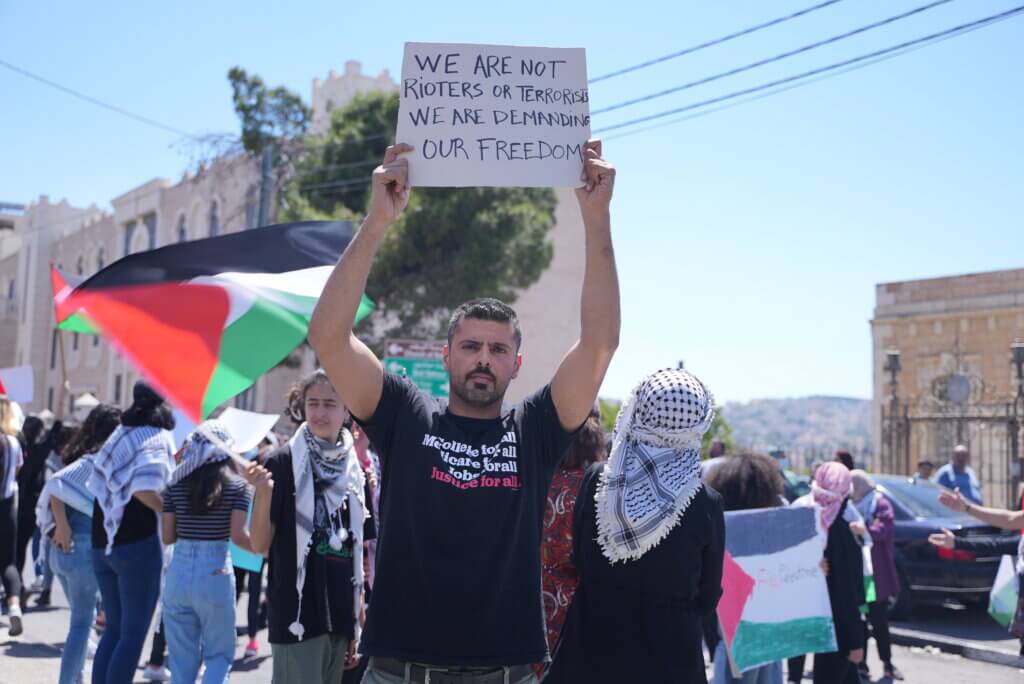
In the early days of May, as the Muslim holy month of Ramadan neared its end, attention surrounding Sheikh Jarrah gained ground, and so did Israel’s crackdown on the neighborhood’s peaceful protests and sit-ins. At the same time, tensions in Jerusalem’s Old City flared, as Israeli authorities continued to crack down on Palestinian presence in the city, arresting dozens of Palestinian youth over the course of Ramadan.
Israeli police violence against in the city was sparking more and more protests, and on May 10th Israeli forces raided the Al-Aqsa compound, the third holiest site in Islam, attacking thousands of worshipers as the prayed inside the holy site. Hundreds of Palestinians were injured with rubber bullets and tear gas.
Hamas authorities in Gaza vowed to retaliate, giving Israel an ultimatum: withdraw from Al-Aqsa and Sheikh Jarrah by 6:00 pm local time on May 10th. When Israeli authorities failed to do so, Hamas began launching rockets from Gaza, and Israel began its devastating offensive on Gaza that would last 11 days and kill hundreds.
The violence in Jerusalem and Gaza sparked massive protests in Palestine and across the world. As right-wing mobs of Israelis launched attacks on Palestinian communities across Israel, Palestinians rose up, and urged people around the world to stand in solidarity with them.
Palestinians living in the West Bank, Jerusalem, and inside Israel participated in massive protests and boycotts as part of what was deemed the “Unity Uprisings”. A general strike across Palestine was launched, and drew unprecedented levels of participation. For many Palestinians, it was the largest display of unity between the West Bank, Gaza, and ’48 Palestine in years.
Israel’s devastating offensive on Gaza

The May offensive on Gaza was Israel’s fourth devastating offensive on the besieged Gaza Strip since 2009. Over the course of 11 days, at least 259 Palestinians were killed, including an estimated 66 children. According to Gaza officials, entire families were wiped off the population registry over the course of the offensive. Israeli airstrikes targeted residential neighborhoods, media offices, and critical infrastructure in Gaza, which was already struggling to recover from the previous three offensives.
In the immediate aftermath of the ceasefire, the Ministry of Public Works and Housing in Gaza estimated that at least 258 buildings were destroyed, comprising 1,042 housing and commercial units.In addition, 769 units were severely damaged and rendered uninhabitable, while an estimated 14,536 additional units suffered minor damage.
Human Rights Watch said there was evidence indicating that Israel committed war crimes during the offensive, reporting that in its investigation of three Israeli strikes that killed 62 Palestinian civilians, HRW found that “ there were no evident military targets in the vicinity.”
The UK-based non-profit Airwars found that among the estimated 1,500 airstrikes carried out by Israeli forces, which claimed to only target Palestinian militant and military outposts, “militants were regularly targeted in non-military settings,” by Israel, leading to high levels of civilian harm.
In fact, according to the Airwars, in more than 70% of incidents where civilians were reported harmed in Gaza during May 2021, they “found no local or official reports of militants having also been killed or injured in the attacks. That is, civilians were the only known victims.”
The report noted that, as is the case with Israel’s previous three offensives on Gaza, Palestinian children paid a particularly high price during the offensive, with children making up over a third of all reported civilian deaths.
A deadly year for Palestinian children

2021 was a deadly year for Palestinian children, not only in the Gaza Strip ,but in the occupied West Bank and East Jerusalem as well. According to Defense for Children International – Palestine (DCIP), 2021 was the deadliest year for Palestinian children since 2014.
As of December 10th, 86 Palestinian children had been killed in the occupied Palestinian territory. According to DCIP numbers, Israel killed 61 children in Gaza, and 15 in the West Bank and East Jerusalem. At least two of the 15 were killed by Israeli civilians, while the rest were killed by Israeli forces.
In Gaza, DCIP said that seven Palestinian children were killed by rockets misfired by Palestinian armed groups, and one was killed by an unexploded ordinance.
Israeli forces have shot and killed 17 Palestinian children with live ammunition this year, 15 in the West Bank and East Jerusalem, and two in the Gaza Strip. At least nine Palestinian children were shot and killed in the context of demonstrations, “and did not present a direct threat to life or of serious injury when they were shot,” DCIP said.
These are the names of some of the children who were killed, and their stories as we reported them this year:
Ahmad Bani Shamsa, 16, and Mohammed Hamayel, 15 – Beita
Yousef Nawaf Mhareb, 17, and Munir al-Tamimi, 17 – Ramallah
Imad Khaled Saleh Hashash, 15 – Nablus
Mohammed al-Alami, 11 – Hebron
Mohammad Nidal Younis Mousa, 15 – Nablus
According to DCIP, since 2000, 2,198 Palestinian children have been killed as a result of Israeli military and settler presence in the Occupied Palestinian Territory.
PA killing of Nizar Banat
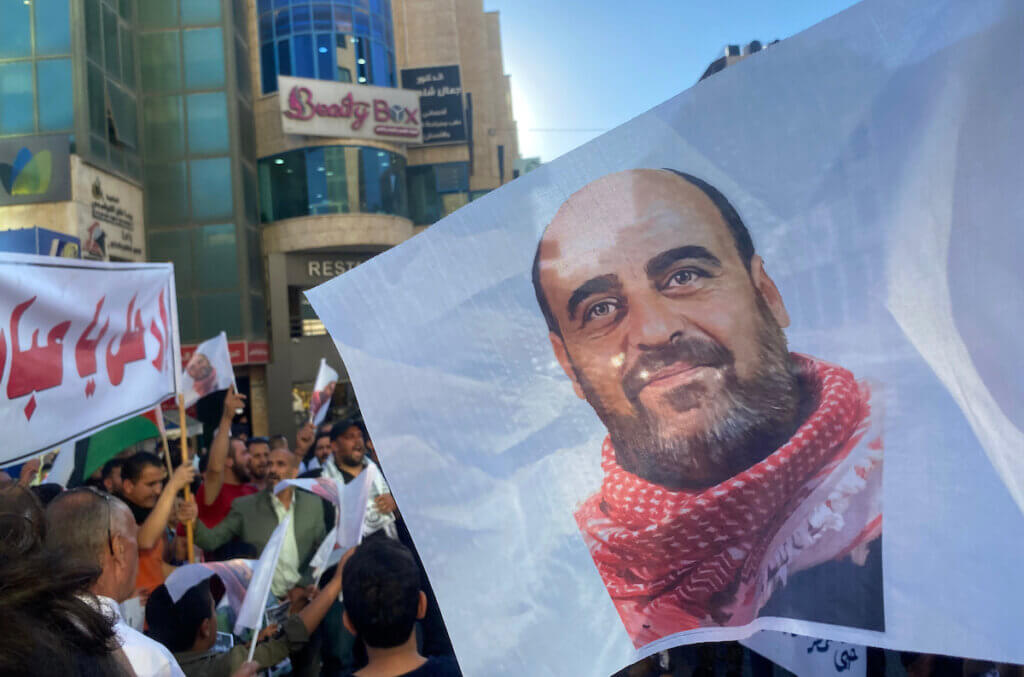
In the early morning hours of June 24th, Palestinian Authority security forces raided the home of prominent Palestinian activist and dissident Nizar Banat. His family says he was pepper sprayed and brutally beaten with metal clubs and rifle butts before he was taken into custody. Just a few hours later, Banat was pronounced dead.
The killing of Banat instantaneously sparked outrage on social media and demonstrations in the occupied West Bank, primarily in the city of Ramallah, the de facto capital of the PA and a stronghold for President Mahmoud Abbas and his Fatah party. The PA launched a brutal crackdown on protesters, with PA security forces fired tear gas and sound bombs at crowds, while plain clothes officers with the PA intelligence and preventative security services, along with Fatah loyalists, attacked protesters with rocks and wooden bats.
Many protesters were physically assaulted by the plain clothes officers and dragged through the streets before they were detained by uniformed officers. Journalists reported being targeted and their cameras and equipment destroyed, while Palestinian women reported being sexually harassed and assaulted. Following protests, activists were arrested and interrogated en masse by the PA, leading to even more international condemnations.
The brutal treatment of the protesters sparked even more outrage on social media, and led to larger and more frequent protests that spread to other areas of the West Bank. Despite calls from protesters and Banat’s families that those responsible for his killing be tried publicly in the courts, no public trial for Banat’s killers was ever held.
The great tunnel escape

Six Palestinian prisoners shocked the world in September when they escaped from a high security Israeli prison through a tunnel that they had dug from under their cells, undetected for weeks by prison security guards.
The political prisoners, four of whom were serving life sentences, escaped the Gilboa prison in northern Israel, notorious for being one of Israel’s most militarized and highly guarded prisons. It was the first prison break since 1987, and only one of a handful in Palestinian history.
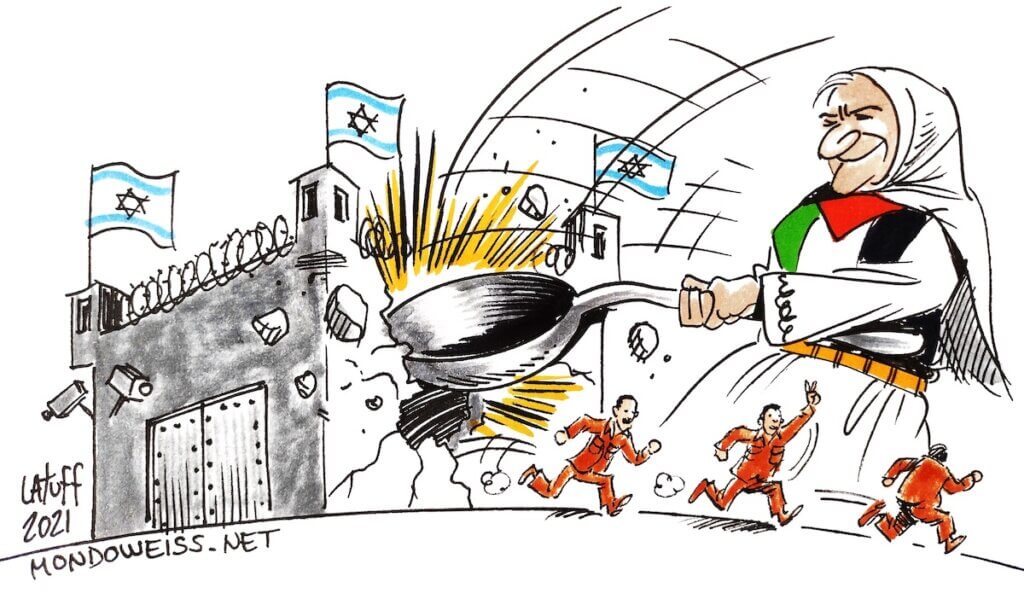
The six prisoners, Mahmoud Abdullah Ardah, Muhammad Qassem Ardah, Yacoub Mahmoud Qadri, Ayham Nayef Kammaji, Zakaria Zubeidi and Munadil Yaqoub Infaat, instantly became heroes in Palestine, symbolizing one of their greatest collective “wins” in a long time, as an estimated 20% of the Palestinian population, and 40% of the Palestinian male population, has been imprisoned by Israel at some point in their lives.
All six prisoners were eventually recaptured by Israel’s security apparatus, which embarked on a weeks-long manhunt in an effort to recover from what security officials described as a major failure and embarrassment. Despite the recapture of the prisoners, the “great tunnel escape” will go down as a significant moment in Palestinian history.
Social media censorship on Palestine

For years, social media has played a crucial role in bringing the message of Palestinians living under occupation to the world. This year, we saw the widespread impact that social media had on galvanizing support for different grassroots movements in Palestine, like the efforts to #SaveSheikhJarrah. Though the struggle to save Sheikh Jarrah from being taken over by settlers has been ongoing for decades, we saw unprecedented global support for the movement this year, in large part because of social media.
But with the unprecedented levels of solidarity with Palestinians on social media, came heavier restrictions on Palestinian freedom of speech on social media platforms. Companies like Facebook have been censoring Palestinian content on its platform for years, working with the Israeli government to shut down and restrict Palestinian accounts accused of “incitement”.
In 2021, censorship was taken to a new level. Under pressure from Zionist organizations, Facebook weighed the decision to equate ‘Zionism’ or ‘Zionist’ with ‘Judaism’ or ‘Jewish’, meaning it would penalize any criticism of Zionist policies on the platform, a move that would disproportionately affect Palestinians who criticize Israel’s policies in the occupied territories.
During the wave of popular uprisings in May, Facebook and Instagram were accused putting arbitrary restrictions on the accounts of Palestinian activists, and “shadow-banning” popular creators who posted about Israeli violations against Palestinians.
Palestinian digital rights group 7amleh recorded at least 990 incidents of digital rights violations against Palestinians in 2021. The biggest offenders were Facebook and Instagram, which collectively took 837 actions against Palestinian content on their platform, in the form of account suspensions, restrictions, and lock outs. Among those targeted were Palestinian journalists, activists, and ordinary individuals.
“The Israeli government and semi-governmental groups report lots of content to Facebook for takedown, with an emphasis on things that are political in nature or surround Palestine, Palestinians, resistance, etc. Israel actors are the ones reporting a lot of content around occupation and criticism of the occupation,” Nadim Nashif, 7amleh’s director told Mondoweiss.
Despite a rise in censorship, Nashif encouraged Palestinians and their supporters to continue to use social media as a platform for their activism, and support the fight against digital censorship: “It’s important to keep fighting for digital rights and for human rights in general. It’s not something you can really quit or give up on. All our lives are becoming part of the digital space, and we should keep fighting for our rights within those spaces.”
Settler violence reaches unprecedented levels

2021 saw a staggering rise in settler violence, with UN OCHA reporting at least 450 settler attacks against Palestinians and their property as of December 20th. According to OCHA documentation, of those attacks, 118 of those incidents resulted in the death or injury of Palestinians.
The Times of Israel cited Israeli security officials as reporting a “drastic spike” in settler violence this year compared to 2020, with the Shin Bet, Israel’s internal intelligence agency, reporting 397 attacks this year, compared to 272 in 2020. According to B’Tselem, 2021 saw a rise in settler violence of 28.6 percent compared to last year.
Over the course of the year, we witnessed settlers attack Palestinians and their property, in attacks that sometimes turned deadly. Settlers attacked Palestinian farmlands year-round, and stepped up their attacks during the olive harvest season.
The last two weeks of December saw a sharp rise in settler violence, following the killing of an Israeli settler. Settlers launched coordinated attacks on Palestinian homes and Palestinian vehicles as they traveled down major highways, leading to the injury of dozens of Palestinians and the damage of their property.
As is the case with most instances of settler violence, rights groups like B’Tselem have noted that attacks are often committed under the full knowledge of the state and security apparatus, and often in coordination with the army itself.
“Settler violence against Palestinians is part of the strategy employed by Israel’s apartheid regime, which seeks to take over more and more West Bank land. The state fully supports and assists these acts of violence, and its agents sometimes participate in them directly. As such, settler violence is a form of government policy, aided and abetted by official state authorities with their active participation,” B’Tselem said.
Attack on Palestinian civil society organizations
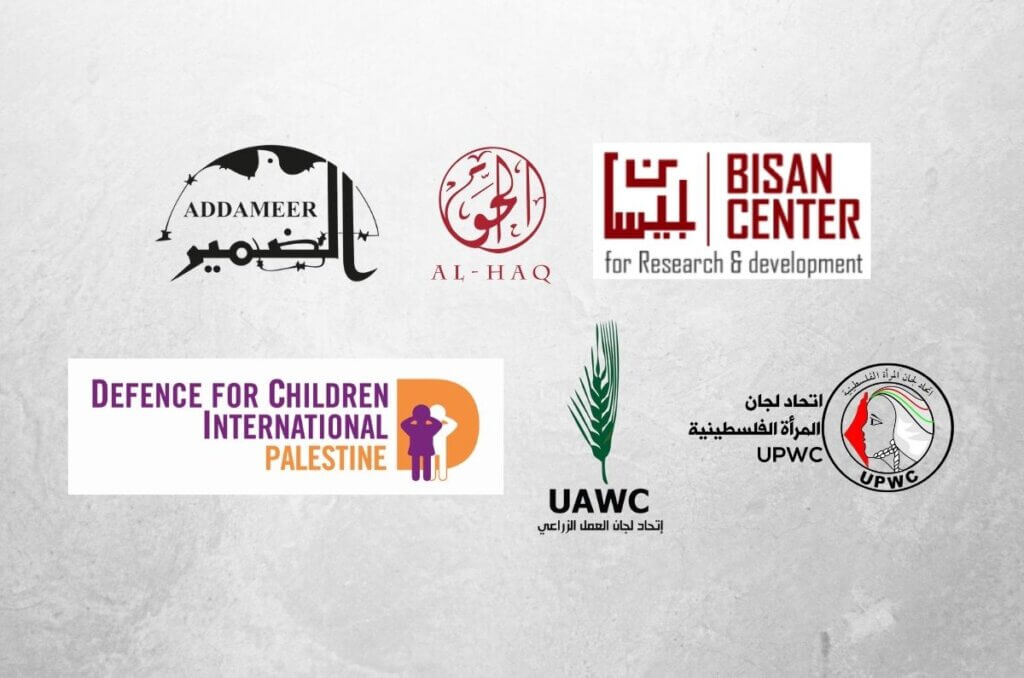
In the largest attack on Palestinian civil society in years, Israel labeled six Palestinian human rights groups as “terrorist organizations” in October, claiming that the organizations had links to the Popular Front for the Liberation of Palestine (PFLP), a Marxist-Leninist resistance group which, like several other Palestinian political factions, Israel considers to be a “terrorist organization.”
On the list were prominent institutions like Addameer, Al-Haq, Defense for Children International – Palestine, the Bisan Centre for Research and Development, the Union of Palestinian Women’s Committees, and the Union of Agricultural Work Committees.
Despite failing to provide any real evidence of its claims, Israel outlawed the organizations’ work inside Israel and the occupied West Bank, giving the greenlight for the imminent closure of the organizations’ offices in the West Bank, the seizure of their contents, the freezing of their bank accounts, and the arrest and imprisonment of their staff.
A number of staff members from the six organizations were also the targets of an NSO hack, with their phones targeted by the military grade Pegasus spyware.
In response to the criminalization of their organizations, the six groups said: “It represents an alarming effort to criminalize and undermine their efforts in furthering the realization of Palestinian human rights and the pursuit of accountability through international mechanisms by discrediting their essential work, isolating them from the international community, and eventually cutting their sources of funding.”
Looking forward into 2022
In 2022 Palestinians will be moving into their 55th year under occupation, and 74 years since their ethnic cleansing began. The world will enter its third year under the coronavirus pandemic, presenting more challenges for Palestinians under occupation. As ordinary Palestinians continue to bring their cause in front of the world, we will see more people across the globe join the call to end Israeli Apartheid. With the growth of grassroots movements liked BDS, we will also see Israel double down its attacks on Palestinian rights groups and civil society organizations.
Looking forward into the future, Nadim Nashif, the director of 7amleh, urged Palestinians and their supporters to continue using tools like social media to bring more attention to the Palestinian cause, saying: “People should keep using social media. It has a great power, especially for Palestinians. It gives us the power to document human rights violations, to raise our voice, and gives us a good opportunity, despite all the problems, to make ourselves heard.”
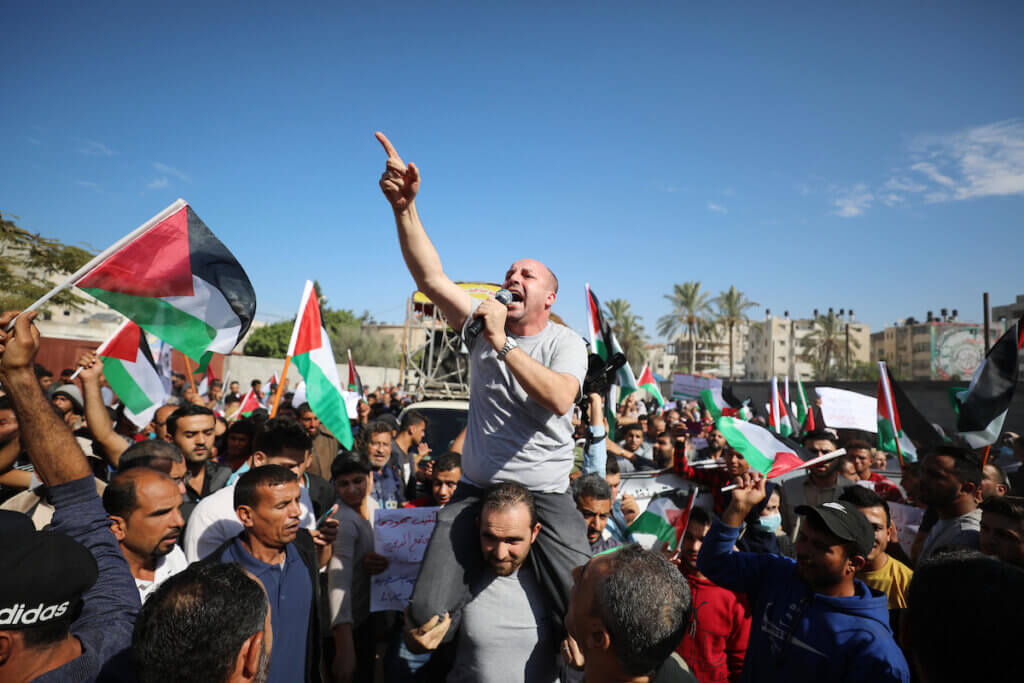
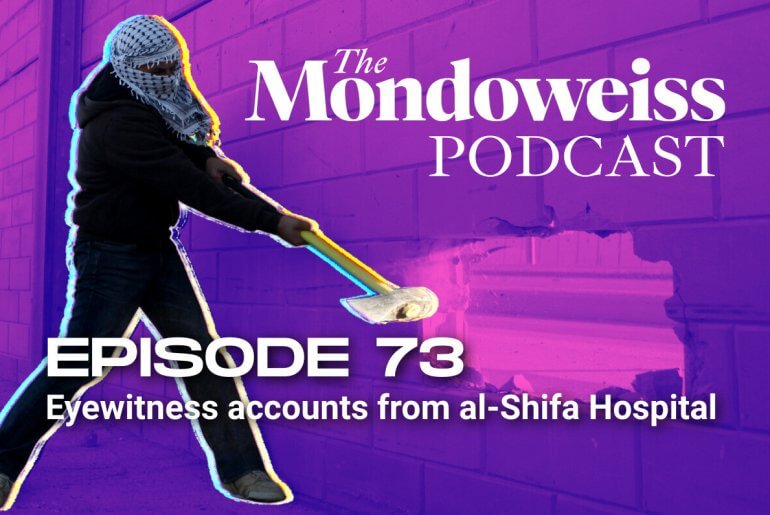
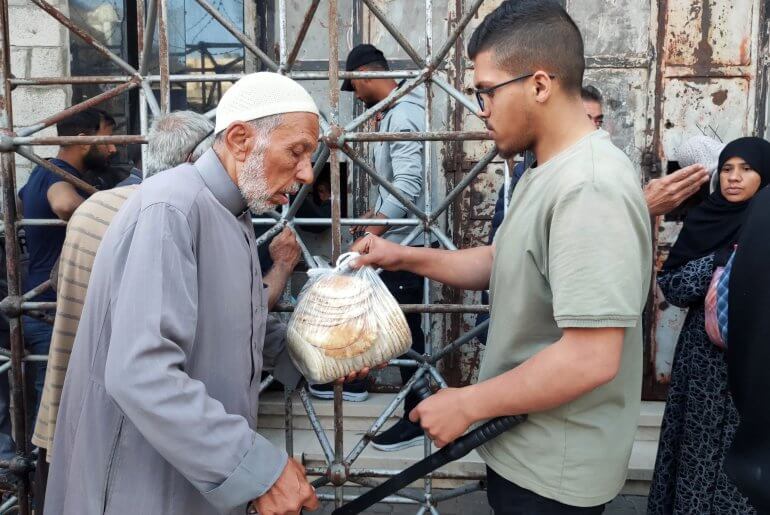

Any recap of 2021 should also include the International Criminal Court Pre-Trial Chamber findings that Palestine is a “State Party” to the Rome Statute and that the court’s territorial jurisdiction extends to the territory occupied by Israel since 1967, namely Gaza and the West Bank, including East Jerusalem. It also ruled that Palestine’s referral of the situation obliged the Prosecutor to open an investigation.
Likewise, Palestine finally won a decision about the admissibility of its longstanding complaint about Israel’s racial discrimination in the occupied territory from the Committee on the Elimination of All Forms of Racial Discrimination (‘CERD’). That UN Treaty body ruled that Israel’s refusal to enter into relations with the State of Palestine didn’t alter its own erga omnes “duty to all” states to fulfill the mandatory (jus cogens) legal requirement and eliminate all forms of racial discrimination.
“Settler violence reaches unprecedented levels”
On that topic, https://www.washingtonpost.com/world/2021/12/28/israel-omer-barlev-threats-jewish-extremist/
An Israeli leader criticized Jewish ‘settler violence.’ Now he has 24/7 protection after extremist threats….Israeli Public Security Minister Omer Barlev said Monday that he will receive round-the-clock protection following threats of harm from extremist Israeli Jews….Barlev, a member of the left-leaning Labor Party, suggested that he had expected threats from “Arab criminals” that he had targeted. “But that is not the case,” he wrote on Twitter. “I am threatened by Israeli Jews.”
Of course we should mention the constant wave of terrorist attacks since 2015 which have commonly come from East Jerusalem. The attacks have spread to Judea and Samaria and even crossed the Green Line into Israel under the battle cry of “Al-Aqsa mosque is in danger.”
This current wave of terrorist attacks is part of the PA’s strategy of “popular resistance” (i.e., popular terrorism) adopted by the PA and Fatah at the Sixth Fatah conference in August 2009. Statements by Fatah, Hamas and PIJ spokespersons have described the attacks as “heroic actions” and “the natural response to Israel’s crimes”.
The attacks have been carried out by young lone terrorists, motivated for the most part by the lie spread by the Palestinian media that Israel allegedly threatened Al-Aqsa mosque, as well as by the frustration, desperation and anger of the younger generation. Generally speaking, the terrorists have not been operatives of any established terrorist organization, and the current wave of terrorism has not been directed by any organization, but rather is directly inspired by intensive incitement propagated on Palestinian social media.
“Hamas authorities in Gaza vowed to retaliate, giving Israel an ultimatum: withdraw from Al-Aqsa and Sheikh Jarrah by 6:00 pm local time on May 10th. When Israeli authorities failed to do so, Hamas began launching rockets from Gaza, and Israel began its devastating offensive on Gaza that would last 11 days and kill hundreds.”
______________________________________________
Trump had confirmed what most figured, Israel wasn’t interested in peace. That a given, there should be more effective approaches than delivering ultimatums.
I don’t read this with much sense of progress. But let the New Year be a happier one!